As we prepare for what we hope will be a better year, there remains understandable trepidation surrounding 2021 – especially for Ireland’s small business owners. With a vaccination plan coming into action, we can be cautiously optimistic about a return to normal life – but when and how this will happen is still largely unknown.
Irish Country Living spoke with two rural business owners on their 2020 experiences and hopes for the year ahead.
jewellery designer
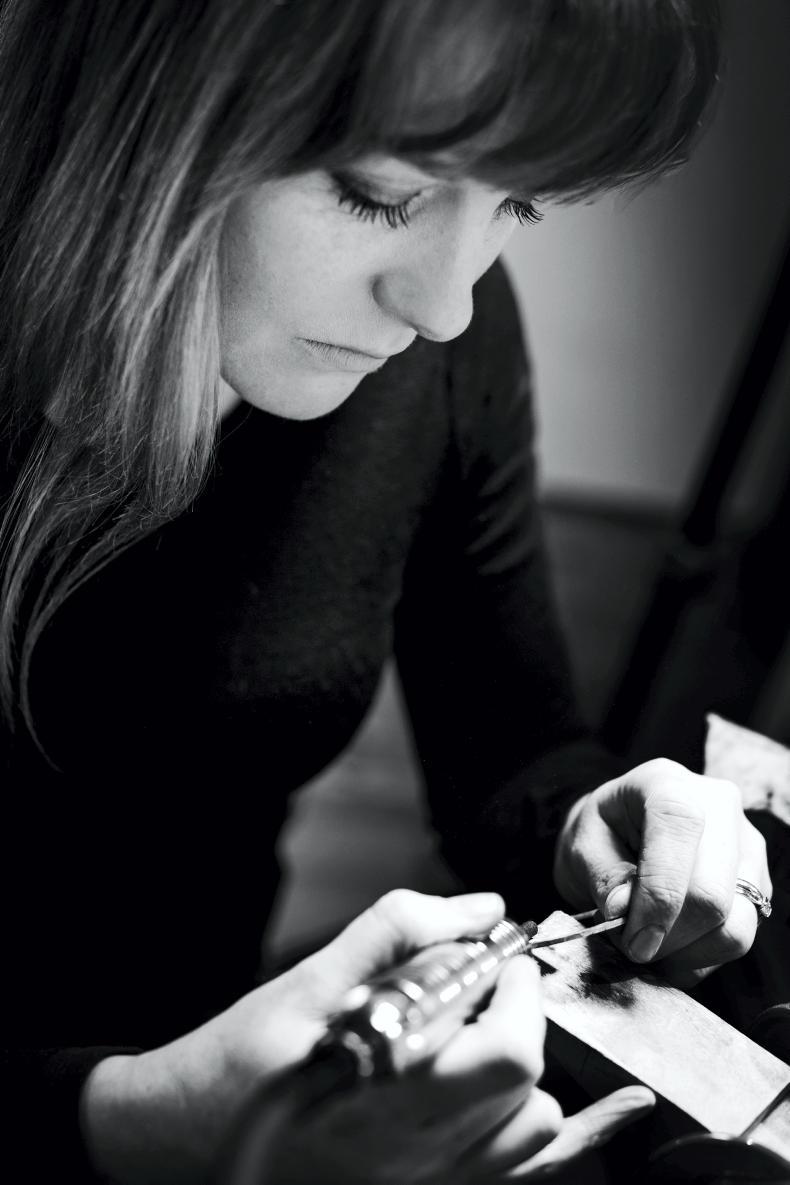
Galway-based jewellery designer Lynsey De Burca. \ Julia Dunin
Mother, wife, artist and entrepreneur: based in Moycullen, Co Galway, Lynsey De Burca wears many hats, but once you experience her infectious energy, it becomes clear how she has driven the success of her business since its inception in 2015.
“We’re in a small village in the foothills of Connemara,” she says. “I do all my work from here. I stock around 14 shops in Ireland and ship internationally – a lot happens from my little studio.
“It’s exciting but we’ve also faced a lot of challenges. With that said, I think we’ve found our feet – we’re cautiously optimistic looking forward to 2021.”
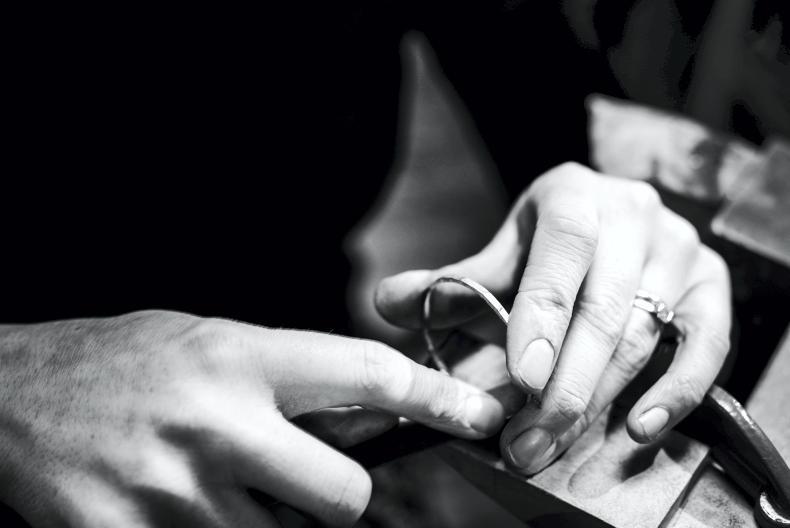
Lynsey learned her craft at the National College of Art and Design. She was initially interested in working with ceramics, but on a chance tour of the college’s metal department, she (literally) saw sparks.
“So I ended up doing metal jewellery design,” she laughs. “Before then, I had always worked in retail and was also working at a jewellers, at the time. I got my degree and worked in applied arts and at a jewellery gallery. I got to know so many makers and learned not just the craft, but the business side of things. Oh, and I got to work with diamonds which was amazing.” Soon after moving back to Galway, Lynsey started her jewellery business, but on a part time basis. She also earned a diploma in Gemology from NUIG. It wasn’t long before she decided to take the plunge; making her business her full-time job.
Lynsey’s style of jewellery is metallic, rustic and delicate all at once. She mainly works with sterling silver; keeping the natural look of the metal before finishing her pieces with a high polish. Recently, she has also been working with gold. While she doesn’t sell product within the UK, she does source her materials from there; creating some legitimate concerns around Brexit.
“And the shipping,” she adds. “We need to iron out the shipping as most of it goes through the UK. Our Local Enterprise Office is offering courses on being Brexit ready, though, and so far we haven’t encountered any huge problems. We just sent a large shipment through the UK and had all our documentation, so we were prepared.”
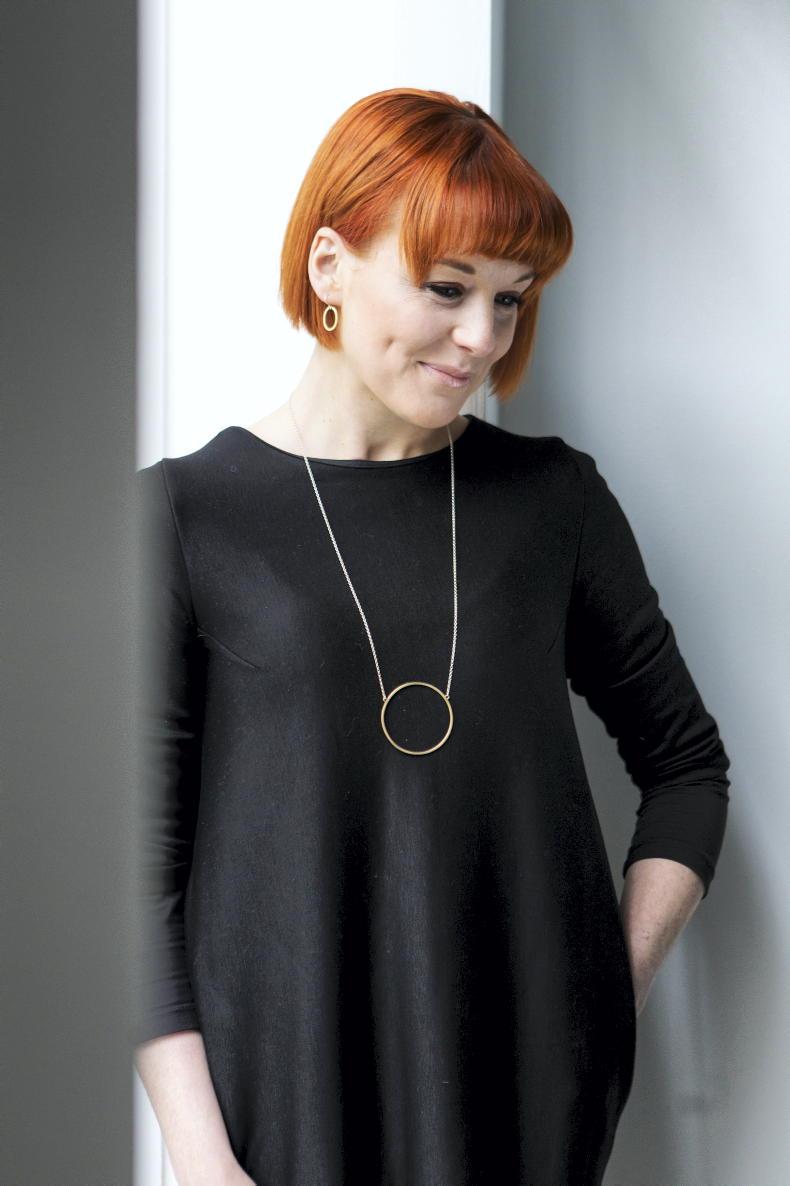
Lynsey De Burca is a jewellery designer in Moycullen, Co Galway.
Lynsey’s cautious optimism for 2021 stems from the many positive experiences she has had throughout the pandemic. As was the case with many Irish entrepreneurs, she found the local support during 2020 to be an overwhelmingly positive experience. “The last few months have been incredible for our online sales,” she says. “As a small business, we’ve just seen so much support.”
lynseydeburca.com
Ballinwillin House Farm

Miriam and Patrick Mulcahy, Ballinwillin House, Mitchelstown, Co Cork.\ Donal O'Leary
Farmer, vineyard owner and hospitality professional Pat Mulcahy isn’t used to being idle. He says that, back in March, the first few weeks of lockdown made him feel uneasy.
“We love to entertain our [B&B] guests for breakfast and dinner and we really miss that,” he says. “At first it was so quiet – it was eerie! Nobody knew (or still knows) what’s going to happen in 2021.”
Pat is no stranger to business diversification. In normal times, he farms organic wild boar, venison and goat; runs their Ballinwillin House B&B (with his wife, Miriam, and their team of employees), offers regular farm tours, owns a wine vineyard in Hungary and plays host to the annual Indiependence Music Festival. At first, the pandemic was a shock to his system, and to their business – which always performed well considering its different streams of revenue.
“The B&B and was wiped out completely,” he says. “We had farm tours booked in with visitors from the US and they were all wiped out. We had to reinvent ourselves – again! We started working with Neighbourfood (the virtual farmer’s market) and weekly mystery boxes (a box filled with seasonal meat chosen by their butcher). We were able to keep everyone employed and the animals fed, which were the important things.
“At first we didn’t know what in the name of God we were going to do,” he continues. “Then everyone settled down. When the second lockdown came, we were much more experienced in dealing with it. Neighbourfood was great for us, and our online sales increased.”
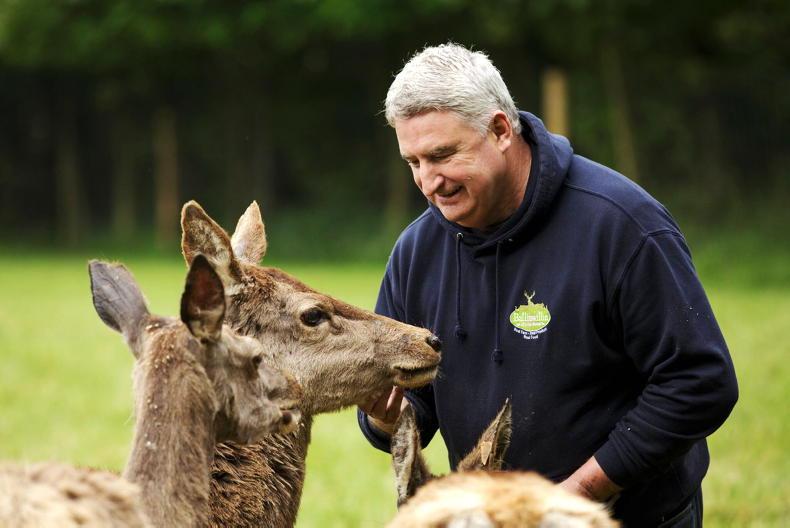
Pat Mulcahy farms organic venison, wild boar and goat at Ballinwillin House in Co Cork. \ Donal O'Leary
The Indiependence Music Festival was obviously cancelled for 2020, and Pat says it’s reasonable to assume it will not be returning for 2021, either, since for most large events you’re planning at least 12 months in advance.
As with many other food producers, the introduction of Neighbourfood was very welcome for Pat and his employees. Even with foodservice orders slowly making their way back; he will continue to supply Neighbourfood and promote his online sales.
“We have 400 new customers and they’re buying regularly,” he smiles. “We’re in 26 Neighbourfood markets [around the country] and we’ve developed great working relationships there.”
Something else which has helped Pat through the difficulties of 2020 are his daily mindfulness practises. He is a great believer in living in the moment; he meditates regularly and also writes motivational articles on his blog The Mindful Farmer.
“Mindfulness practise helps greatly,” he says. “I meditate first thing in the morning and again at night and it’s really energising. The fallout from 2020 will be fairly big, for most people, and we all need strength of mind. With family circumstances, banks and mortgages and everything else, it would be great if everyone moved into 2021 with more empathy.”
Thanks to his mindful outlook, Pat isn’t too concerned about the eventuality of Brexit and how it might affect his business. His vineyard in Hungary has had a great year (even though he couldn’t get there for a visit) and he is expecting a shipment of his wine very soon, which will also be available through his Neighbourfood markets.
“We’re not going to worry about Brexit,” he says. “We’re living in the now, dealing with today and driving on with positivity.”
ballinwillinhouse.com | For more information on the Neighbourfood virtual farmers market, please visit their website www.neighbourfood.ie/
Enterprise
Ireland’s top
tips for preparing for Brexit
Mark Christal, manager of the regions and entrepreneurship division at Enterprise Ireland says no one should underestimate the affect both COVID-19 and Brexit will have on Irish businesses – particularly, smaller businesses.
“This has been a challenging year for Irish business,” he says. “On 1 January, we will have a new trading relationship with the UK. It’s a major challenge, but our advice to businesses is: This isn’t the time to panic, this is the time to act.”
Enterprise Ireland lists five straightforward actions every business trading to, from or through the UK (excluding Northern Ireland) needs to take, especially to deal with the new customs procedures that will be a reality from 1 January 2021.
1 Secure your Economic Operators Registration and Identification (EORI) number from the Revenue Commissioners. It takes just five minutes to do online, but is essential for any business.
2 Learn the commodity code(s) for your product(s). This classifies goods into different commodity groups and you will need it for your customs documentation.
3 Identify who is going to manage your company’s customs procedure. Have you decided if you will do this in-house or through a customs intermediary?
4 If you decide to manage the process in-house, you should look at Enterprise Ireland’s Ready for Brexit grant. This provides a €9,000 grant for each new employee engaged in customs work. The grant also covers costs associated with redeploying an existing employee.
5 Have a frank conversation with your haulage or freight provider. Even if they are managing the customs process for you, there is information you’ll need to provide so your shipments continue to move smoothly.
*Enterprise Ireland has developed a Brexit Readiness Checker, available on www.prepareforbrexit.com. This online tool will go through these and other steps and provide you with an individual report and advice on how to take action.
As we prepare for what we hope will be a better year, there remains understandable trepidation surrounding 2021 – especially for Ireland’s small business owners. With a vaccination plan coming into action, we can be cautiously optimistic about a return to normal life – but when and how this will happen is still largely unknown.
Irish Country Living spoke with two rural business owners on their 2020 experiences and hopes for the year ahead.
jewellery designer

Galway-based jewellery designer Lynsey De Burca. \ Julia Dunin
Mother, wife, artist and entrepreneur: based in Moycullen, Co Galway, Lynsey De Burca wears many hats, but once you experience her infectious energy, it becomes clear how she has driven the success of her business since its inception in 2015.
“We’re in a small village in the foothills of Connemara,” she says. “I do all my work from here. I stock around 14 shops in Ireland and ship internationally – a lot happens from my little studio.
“It’s exciting but we’ve also faced a lot of challenges. With that said, I think we’ve found our feet – we’re cautiously optimistic looking forward to 2021.”

Lynsey learned her craft at the National College of Art and Design. She was initially interested in working with ceramics, but on a chance tour of the college’s metal department, she (literally) saw sparks.
“So I ended up doing metal jewellery design,” she laughs. “Before then, I had always worked in retail and was also working at a jewellers, at the time. I got my degree and worked in applied arts and at a jewellery gallery. I got to know so many makers and learned not just the craft, but the business side of things. Oh, and I got to work with diamonds which was amazing.” Soon after moving back to Galway, Lynsey started her jewellery business, but on a part time basis. She also earned a diploma in Gemology from NUIG. It wasn’t long before she decided to take the plunge; making her business her full-time job.
Lynsey’s style of jewellery is metallic, rustic and delicate all at once. She mainly works with sterling silver; keeping the natural look of the metal before finishing her pieces with a high polish. Recently, she has also been working with gold. While she doesn’t sell product within the UK, she does source her materials from there; creating some legitimate concerns around Brexit.
“And the shipping,” she adds. “We need to iron out the shipping as most of it goes through the UK. Our Local Enterprise Office is offering courses on being Brexit ready, though, and so far we haven’t encountered any huge problems. We just sent a large shipment through the UK and had all our documentation, so we were prepared.”

Lynsey De Burca is a jewellery designer in Moycullen, Co Galway.
Lynsey’s cautious optimism for 2021 stems from the many positive experiences she has had throughout the pandemic. As was the case with many Irish entrepreneurs, she found the local support during 2020 to be an overwhelmingly positive experience. “The last few months have been incredible for our online sales,” she says. “As a small business, we’ve just seen so much support.”
lynseydeburca.com
Ballinwillin House Farm

Miriam and Patrick Mulcahy, Ballinwillin House, Mitchelstown, Co Cork.\ Donal O'Leary
Farmer, vineyard owner and hospitality professional Pat Mulcahy isn’t used to being idle. He says that, back in March, the first few weeks of lockdown made him feel uneasy.
“We love to entertain our [B&B] guests for breakfast and dinner and we really miss that,” he says. “At first it was so quiet – it was eerie! Nobody knew (or still knows) what’s going to happen in 2021.”
Pat is no stranger to business diversification. In normal times, he farms organic wild boar, venison and goat; runs their Ballinwillin House B&B (with his wife, Miriam, and their team of employees), offers regular farm tours, owns a wine vineyard in Hungary and plays host to the annual Indiependence Music Festival. At first, the pandemic was a shock to his system, and to their business – which always performed well considering its different streams of revenue.
“The B&B and was wiped out completely,” he says. “We had farm tours booked in with visitors from the US and they were all wiped out. We had to reinvent ourselves – again! We started working with Neighbourfood (the virtual farmer’s market) and weekly mystery boxes (a box filled with seasonal meat chosen by their butcher). We were able to keep everyone employed and the animals fed, which were the important things.
“At first we didn’t know what in the name of God we were going to do,” he continues. “Then everyone settled down. When the second lockdown came, we were much more experienced in dealing with it. Neighbourfood was great for us, and our online sales increased.”

Pat Mulcahy farms organic venison, wild boar and goat at Ballinwillin House in Co Cork. \ Donal O'Leary
The Indiependence Music Festival was obviously cancelled for 2020, and Pat says it’s reasonable to assume it will not be returning for 2021, either, since for most large events you’re planning at least 12 months in advance.
As with many other food producers, the introduction of Neighbourfood was very welcome for Pat and his employees. Even with foodservice orders slowly making their way back; he will continue to supply Neighbourfood and promote his online sales.
“We have 400 new customers and they’re buying regularly,” he smiles. “We’re in 26 Neighbourfood markets [around the country] and we’ve developed great working relationships there.”
Something else which has helped Pat through the difficulties of 2020 are his daily mindfulness practises. He is a great believer in living in the moment; he meditates regularly and also writes motivational articles on his blog The Mindful Farmer.
“Mindfulness practise helps greatly,” he says. “I meditate first thing in the morning and again at night and it’s really energising. The fallout from 2020 will be fairly big, for most people, and we all need strength of mind. With family circumstances, banks and mortgages and everything else, it would be great if everyone moved into 2021 with more empathy.”
Thanks to his mindful outlook, Pat isn’t too concerned about the eventuality of Brexit and how it might affect his business. His vineyard in Hungary has had a great year (even though he couldn’t get there for a visit) and he is expecting a shipment of his wine very soon, which will also be available through his Neighbourfood markets.
“We’re not going to worry about Brexit,” he says. “We’re living in the now, dealing with today and driving on with positivity.”
ballinwillinhouse.com | For more information on the Neighbourfood virtual farmers market, please visit their website www.neighbourfood.ie/
Enterprise
Ireland’s top
tips for preparing for Brexit
Mark Christal, manager of the regions and entrepreneurship division at Enterprise Ireland says no one should underestimate the affect both COVID-19 and Brexit will have on Irish businesses – particularly, smaller businesses.
“This has been a challenging year for Irish business,” he says. “On 1 January, we will have a new trading relationship with the UK. It’s a major challenge, but our advice to businesses is: This isn’t the time to panic, this is the time to act.”
Enterprise Ireland lists five straightforward actions every business trading to, from or through the UK (excluding Northern Ireland) needs to take, especially to deal with the new customs procedures that will be a reality from 1 January 2021.
1 Secure your Economic Operators Registration and Identification (EORI) number from the Revenue Commissioners. It takes just five minutes to do online, but is essential for any business.
2 Learn the commodity code(s) for your product(s). This classifies goods into different commodity groups and you will need it for your customs documentation.
3 Identify who is going to manage your company’s customs procedure. Have you decided if you will do this in-house or through a customs intermediary?
4 If you decide to manage the process in-house, you should look at Enterprise Ireland’s Ready for Brexit grant. This provides a €9,000 grant for each new employee engaged in customs work. The grant also covers costs associated with redeploying an existing employee.
5 Have a frank conversation with your haulage or freight provider. Even if they are managing the customs process for you, there is information you’ll need to provide so your shipments continue to move smoothly.
*Enterprise Ireland has developed a Brexit Readiness Checker, available on www.prepareforbrexit.com. This online tool will go through these and other steps and provide you with an individual report and advice on how to take action.






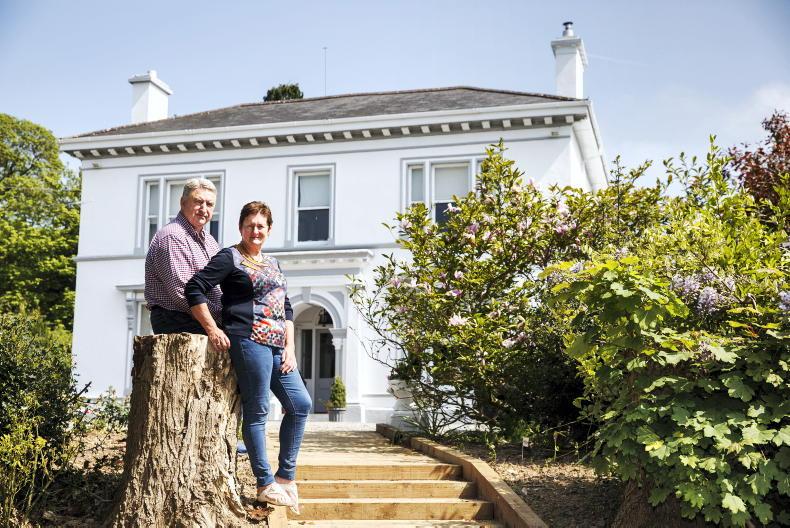




 This is a subscriber-only article
This is a subscriber-only article









SHARING OPTIONS: